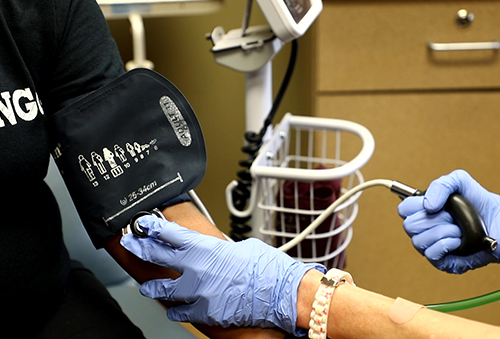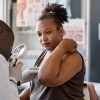Timely Testing Can Prevent Disease
In recent months, the COVID-19 pandemic may have had you thinking twice about seeing your doctor for a regularly scheduled health screening. However, these tests shouldn’t be put off for too long, as they are vital to your overall well-being, according to James E. Misak, MD, family medicine physician and Vice Chair of Community and Population Health, MetroHealth Department of Family Medicine.
“Screening tests can detect a variety of medical conditions early on, while they’re still highly treatable,” he said. “Some screening tests even help with preventing disease.”
Essential screenings that can save lives
Here are the tests Dr. Misak recommends for adults:
- Breast cancer screening every other year for women between the ages of 50 and 74 who have an average risk for breast cancer. Some medical societies recommend screening mammography more frequently and starting at an earlier age, so women aged 40 and older should talk to their doctor about when it is best to begin screenings.
- Cervical cancer screening with Pap smear every three years in women ages 21 to 29. For women between 30 and 65, screening should occur every three years with a Pap smear alone, every five years with high-risk human papillomavirus testing (HPV) alone, or every five years with high-risk HPV and Pap smear combined.
- Colorectal cancer screening from ages 50 to 75 years in average risk patients. If you are at greater risk for colon cancer (a family history, colorectal polyps or inflammatory bowel disease), you should begin screenings at age 45. Screening options range from a colonoscopy every 10 years or a fecal occult blood test every year. Low-risk patients may also be able to do a FIT (fecal immunochemical test) screening from the privacy of their own home. Talk to your doctor about which screening is best for you.
- Cardiovascular risk assessment that includes checking blood sugar levels for diabetes in people ages 40 to 70 who are overweight or obese. Doctors also screen for high cholesterol levels and high blood pressure. Talk to your doctor about the right cardiovascular risk assessment screening interval for you.
- High blood pressure screening every year in people age 40 and older and in people who are high risk. Adults ages 18 to 39 should be screened every three to five years.
Health screenings aren’t just for adults. In addition to taking care of yourself, be sure to ask your pediatrician what tests your child might need. Dr. Misak recommends that parents continue to keep their children up to date on vaccinations and annual wellness visits, and to talk to their pediatrician about when the following screenings should be done:
- Vision test
- Hearing check
- Lead screening
- Blood pressure check
Make an Appointment
The best way to find out what screening tests you need is to visit your primary care physician. Use your MyChart account or call 216-778-2273 to make an appointment.
If you are still uncertain about visiting your doctor on-site, our telehealth appointments are another convenient option to talk to your doctor about health screenings.
Contributor:

James Misak, MD











